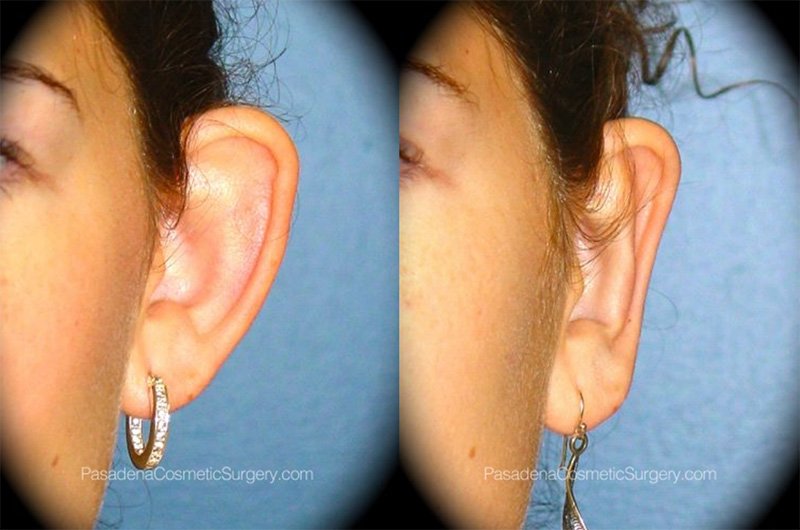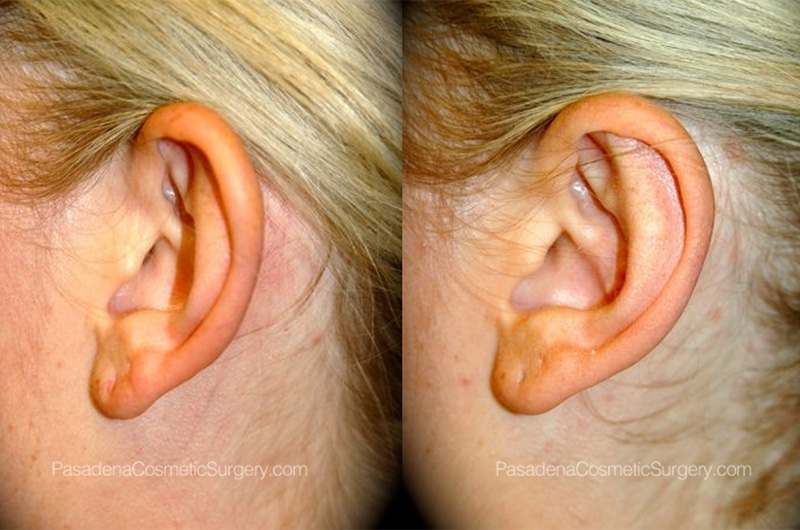What is Otoplasty?
Otoplasty reshapes the ears to produce a more natural and complementary look. This can include minor and more pronounced issues with size, volume, and positioning issues. Drs. Martin and Adam O’Toole commonly recommend otoplasty for overly large ears or ears that protrude unattractively from the head. Additionally, it may be suggested for more subtle structural abnormalities that detract from your overall appearance.
Schedule a ConsultationBenefits of Otoplasty
There are several benefits to otoplasty surgery, including:
- Improved confidence and self-esteem
- Improved appearance of the ears
- Correction of congenital ear deformities or ear deformities due to trauma
- Correction of asymmetry of the ears
- Correction of misshapen ears
- Correction of large or overlong earlobes
- Better facial balance and overall symmetry
If you struggle with any of the above issues concerning the appearance of your ears, you may benefit from otoplasty surgery
How Is Otoplasty Performed?
Otoplasty is an outpatient procedure that is performed in our state-of-the-art surgical facility. It can be done using local anesthesia and sedation or general anesthesia. Most adults do fine with local anesthesia, but we also offer general anesthesia, especially for children who may have trouble staying still with a local anesthetic.
Drs. Martin and Adam O’Toole use incisions placed at the back of your ear to reshape and, in some cases, remove cartilage. Once the ears are adjusted to his specifications, your doctor will suture the incisions, completing the surgery. The specifics of the procedure, such as incision placement and techniques used, will vary according to your needs and desired results. More in-depth details of your otoplasty surgery will be discussed during your consultation.
What Can I Expect From My Otoplasty Recovery?
Once your otoplasty surgery is complete, your ears will be covered in bandages to protect them and provide compression and support. Your ears will be swollen and red, and you may experience discomfort, but this can be easily managed with prescription or over-the-counter pain medications. Your ears may feel itchy or numb, but this is normal and will subside as you heal.
Even though you may want to itch your ears or touch them, you shouldn’t. Keeping the bandages clean and dry is essential, and any rubbing or pressure may put too much force on your incisions. Plan to wear clothing that buttons up or has a loose-fitting collar to help avoid contact with your ears. You will also need to sleep on your back to keep weight off your newly shaped ears. The bandages will be removed from your ears one to two weeks after your surgery. You may still need a wrap or headband to protect and support your ears.
Full recovery from otoplasty surgery typically takes between six and eight weeks. However, you can return to work, school, or other daily activities about a week after the procedure. It is essential to continue protecting your ears as they heal, so you must restrict your physical activities until your doctor clears them. He will give you specific instructions about what to expect from your recovery, and following them closely will help ensure a beautiful result.
When Will I See My Otoplasty Results?
You will usually notice some results immediately after your otoplasty surgery. You’ll continue to see gradual improvement in your ears, and they should be mostly healed about six weeks after your surgery. It will take around three months for your ears to fully heal, and you can enjoy your final results.
Why Choose Pasadena Cosmetic Surgery?
At Pasadena Cosmetic Surgery, Dr. Martin O’Toole and Dr. Adam O’Toole are board-certified plastic surgeons with the skill and experience to deliver top-quality patient comfort, safety, and satisfaction. Both take the time to customize procedures to meet the individual’s unique needs and complement the natural features of each patient.
The doctors at Pasadena Cosmetic Surgery welcome an opportunity to meet with you—free of cost and obligation—to discuss your concerns and help you determine if otoplasty can help you or your child.
Schedule a ConsultationBefore & After


Otoplasty FAQ
-
Am I a candidate for otoplasty?
Candidates for otoplasty are non-smokers and are in overall good health. Children undergoing otoplasty must be at least five years old. Ideal candidates wish to improve the appearance of their ears and have realistic expectations for the results of the surgery. They also may have one or more of the following:
- Oversized ears
- Misshapen ears
- Protruding ears
- Reduced self-esteem due to their ears
-
How long will my otoplasty results last?
Otoplasty results are permanent; you will enjoy your new ear shape for the rest of your life.
-
Are there any risks associated with otoplasty?
Like any surgical procedure, otoplasty does have some risks, including:
- Bleeding
- Scarring
- Infection
- Poor wound healing
- Ear asymmetry
- Loss of sensation in the ears
- Overcorrection
If you experience any of the above symptoms, contact Pasadena Cosmetic Surgery immediately.
-
Does otoplasty leave scars?
Any surgery that involves incisions will leave scars. However, otoplasty incisions are usually hidden behind the ear or within the folds of the ear, minimizing their visibility. Proper care of the incisions during recovery will also help keep scarring to a minimum, and any scars will fade over time.
-
Is otoplasty surgery painful?
The surgery is not painful, as it is performed using local or general anesthesia. After surgery, there may be some discomfort, but it is manageable with pain relievers.
-
How old must my child be to undergo otoplasty?
In order to get otoplasty surgery, a child must be at least five. This is when their ears have typically reached their full size.
-
How much does otoplasty cost in Pasadena?
The cost of otoplasty varies according to variables like the technique used, the degree of correction necessary, the type of anesthesia, facility costs, and the surgeon’s fees. When you come in for your otoplasty consultation, we will give you a cost quote specific to your procedure. We also offer financing options.
-
Does insurance cover otoplasty?
Insurance companies view otoplasty as a cosmetic procedure, so they often do not cover it. However, if your otoplasty is done to correct a congenital issue, insurance may consider it medically necessary and will cover it.
Each insurance provider is different; some may cover your procedure, even if it is cosmetic. The best way to determine if your insurance plan covers otoplasty is to call and check with them.




